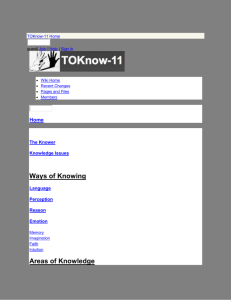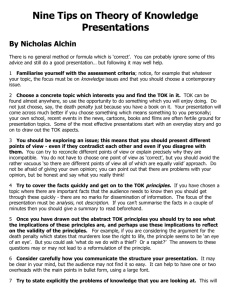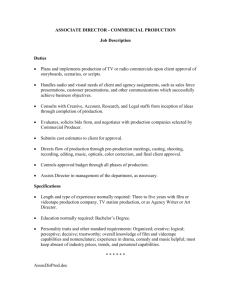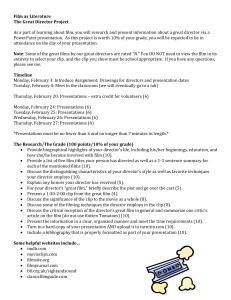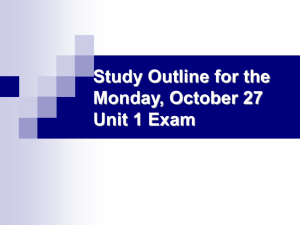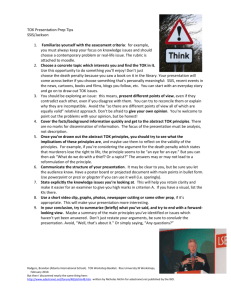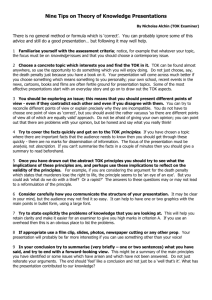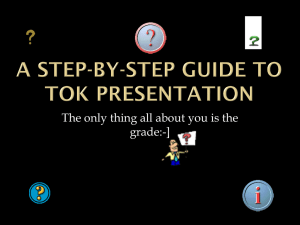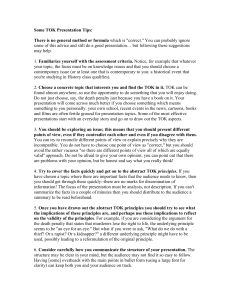Oral Presentations for Theory of Knowledge
advertisement
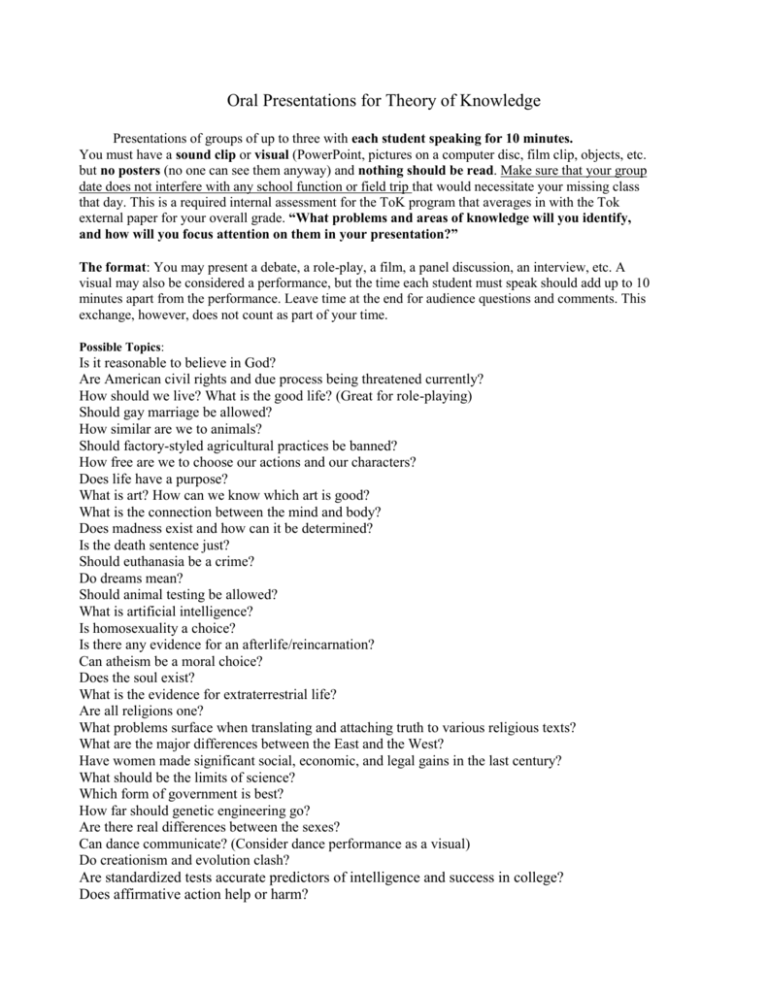
Oral Presentations for Theory of Knowledge Presentations of groups of up to three with each student speaking for 10 minutes. You must have a sound clip or visual (PowerPoint, pictures on a computer disc, film clip, objects, etc. but no posters (no one can see them anyway) and nothing should be read. Make sure that your group date does not interfere with any school function or field trip that would necessitate your missing class that day. This is a required internal assessment for the ToK program that averages in with the Tok external paper for your overall grade. “What problems and areas of knowledge will you identify, and how will you focus attention on them in your presentation?” The format: You may present a debate, a role-play, a film, a panel discussion, an interview, etc. A visual may also be considered a performance, but the time each student must speak should add up to 10 minutes apart from the performance. Leave time at the end for audience questions and comments. This exchange, however, does not count as part of your time. Possible Topics: Is it reasonable to believe in God? Are American civil rights and due process being threatened currently? How should we live? What is the good life? (Great for role-playing) Should gay marriage be allowed? How similar are we to animals? Should factory-styled agricultural practices be banned? How free are we to choose our actions and our characters? Does life have a purpose? What is art? How can we know which art is good? What is the connection between the mind and body? Does madness exist and how can it be determined? Is the death sentence just? Should euthanasia be a crime? Do dreams mean? Should animal testing be allowed? What is artificial intelligence? Is homosexuality a choice? Is there any evidence for an afterlife/reincarnation? Can atheism be a moral choice? Does the soul exist? What is the evidence for extraterrestrial life? Are all religions one? What problems surface when translating and attaching truth to various religious texts? What are the major differences between the East and the West? Have women made significant social, economic, and legal gains in the last century? What should be the limits of science? Which form of government is best? How far should genetic engineering go? Are there real differences between the sexes? Can dance communicate? (Consider dance performance as a visual) Do creationism and evolution clash? Are standardized tests accurate predictors of intelligence and success in college? Does affirmative action help or harm?
